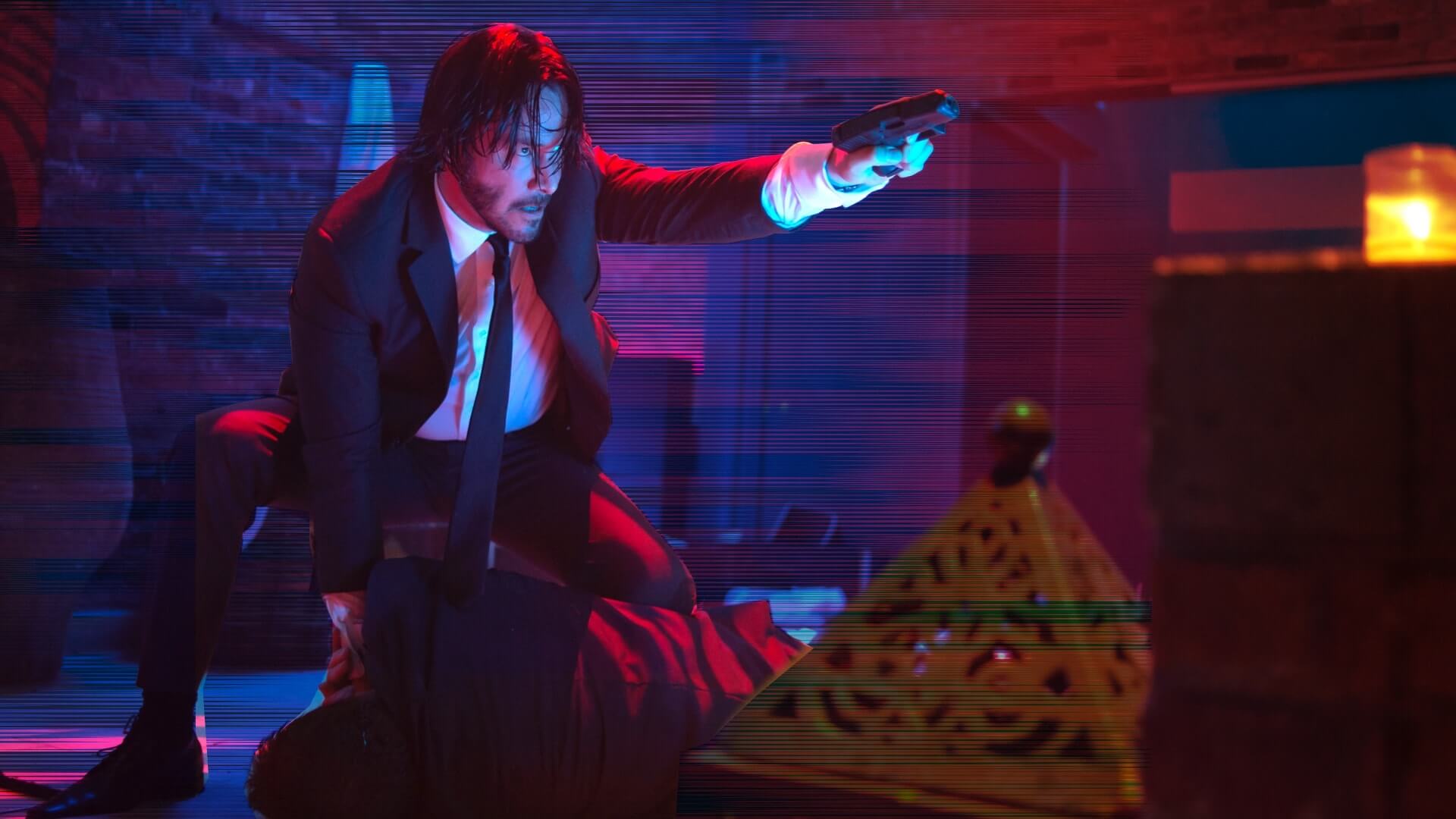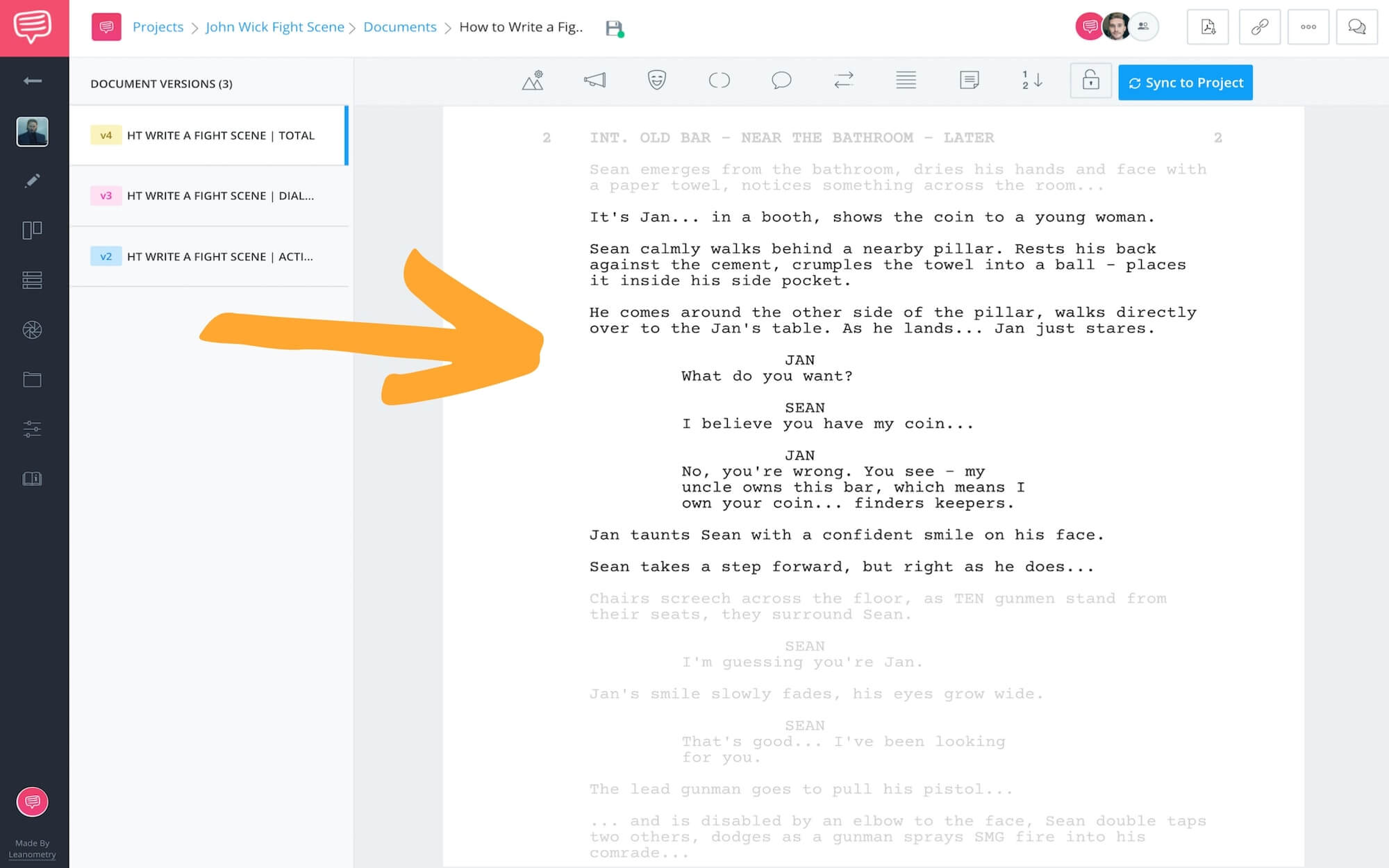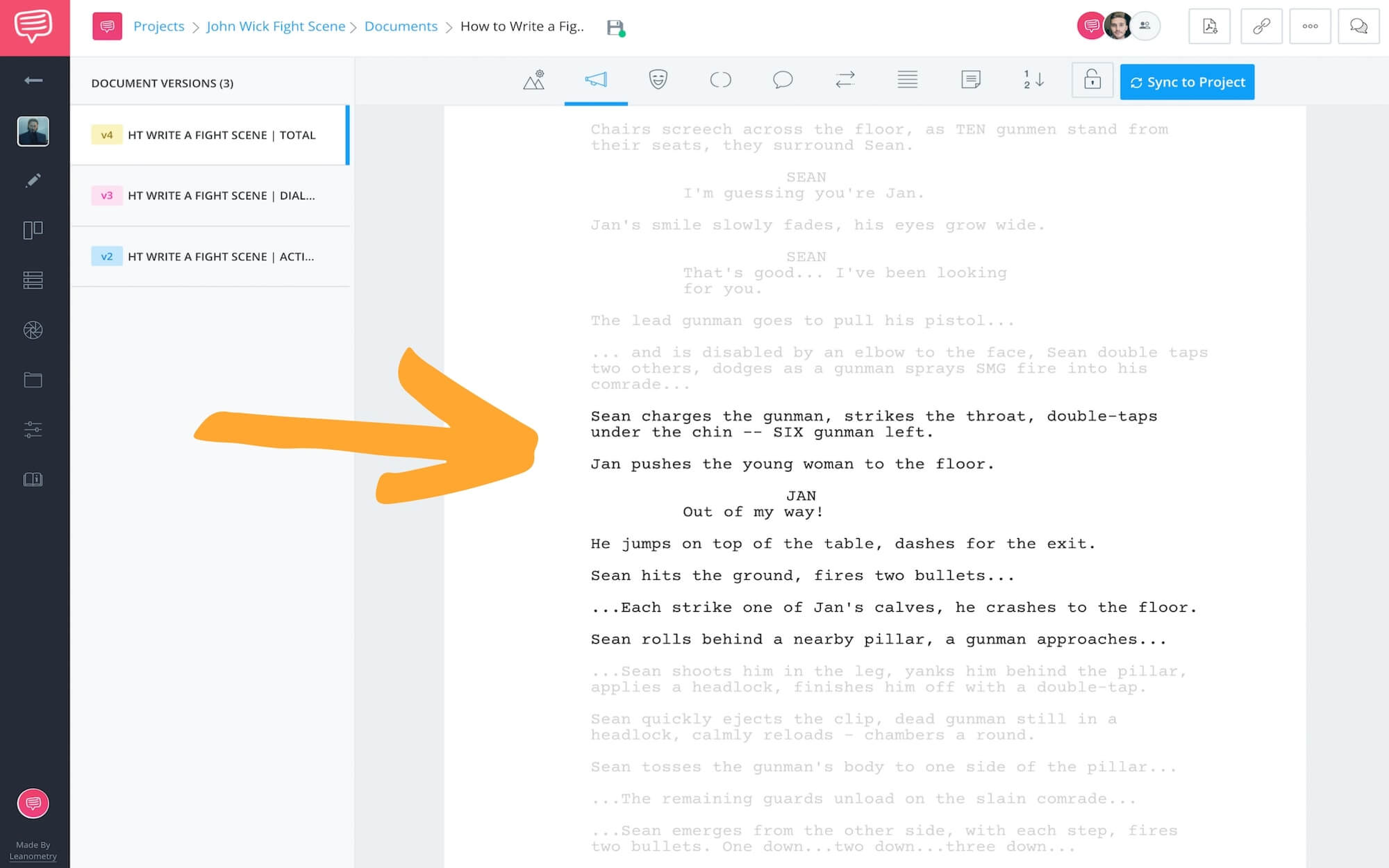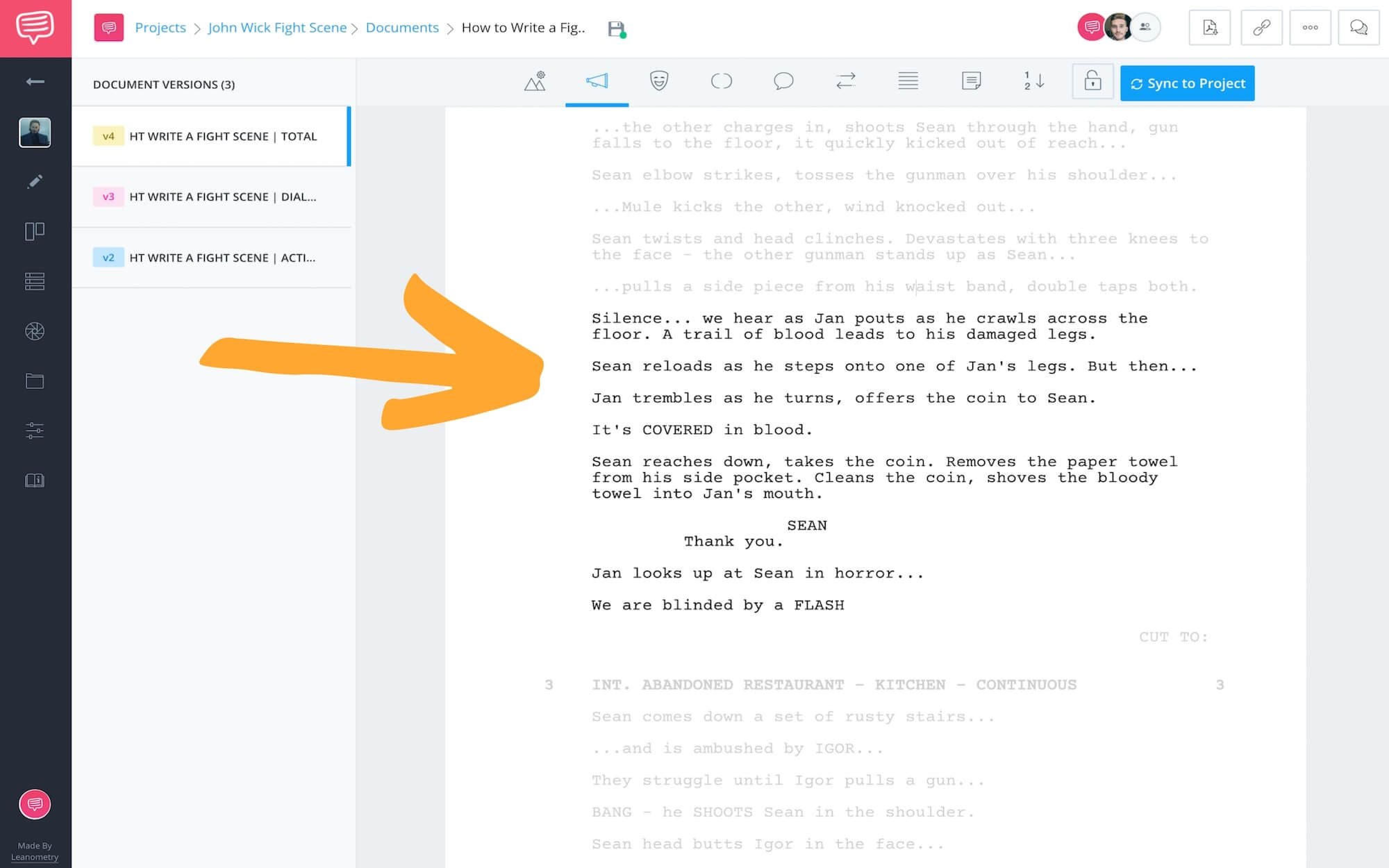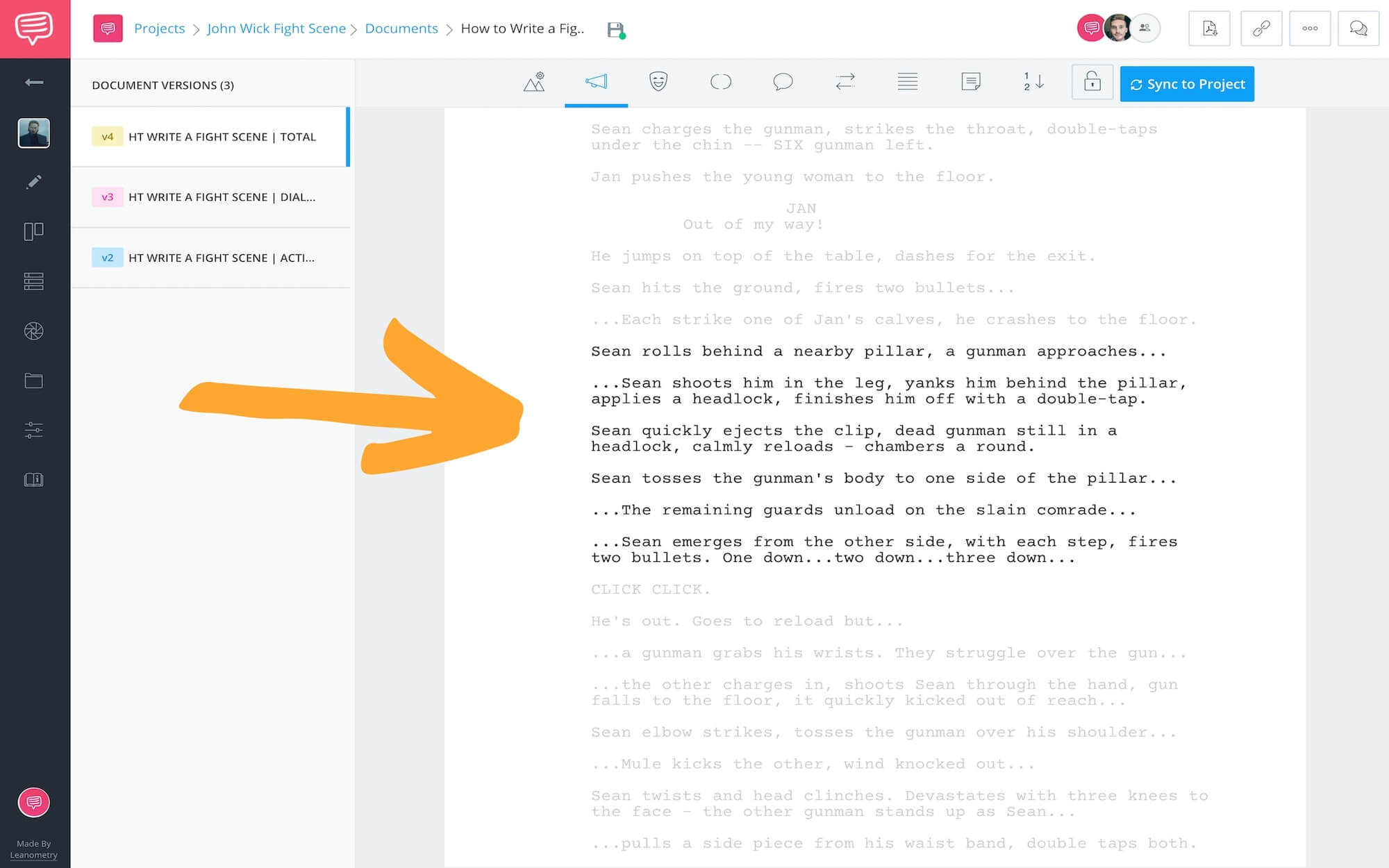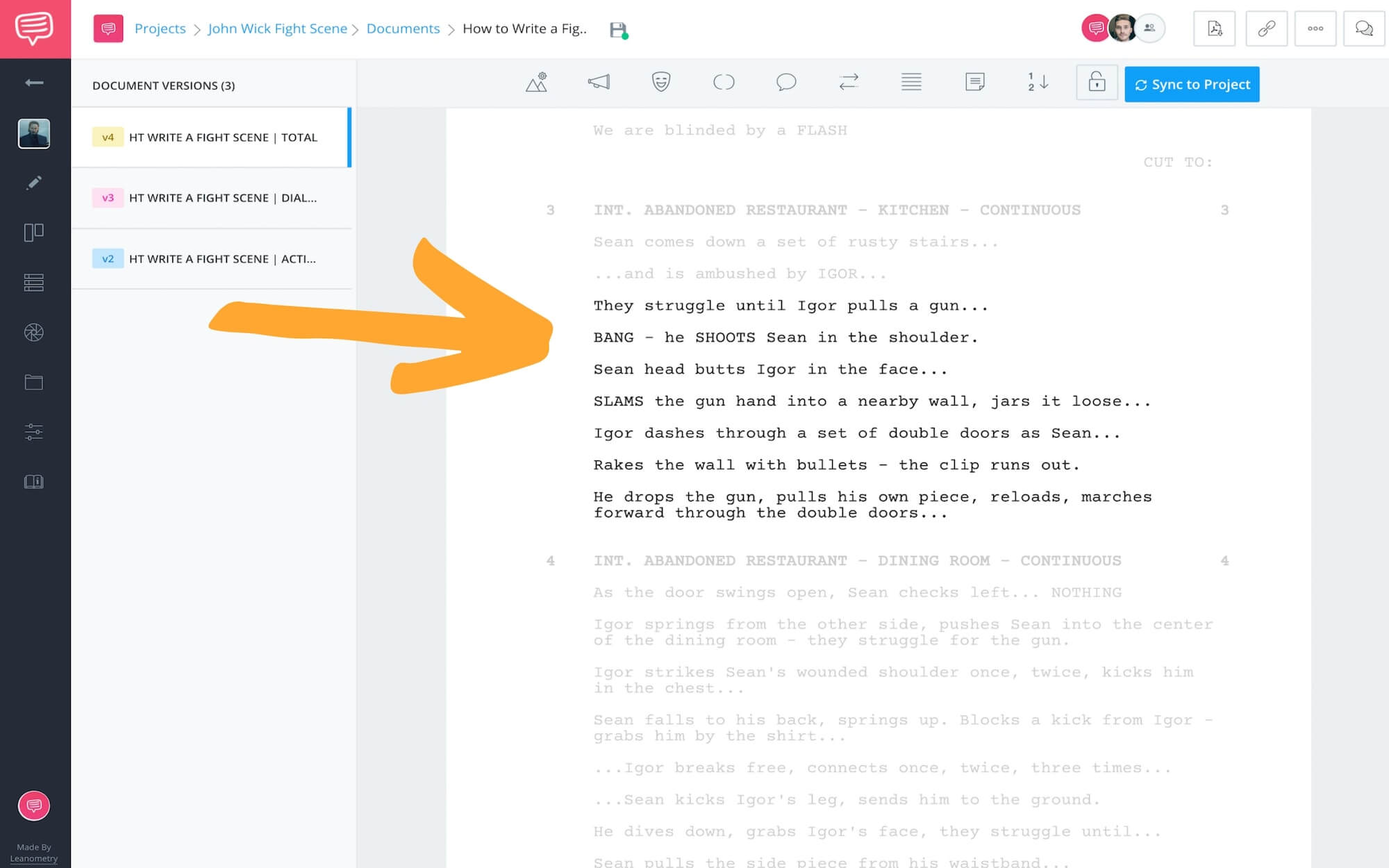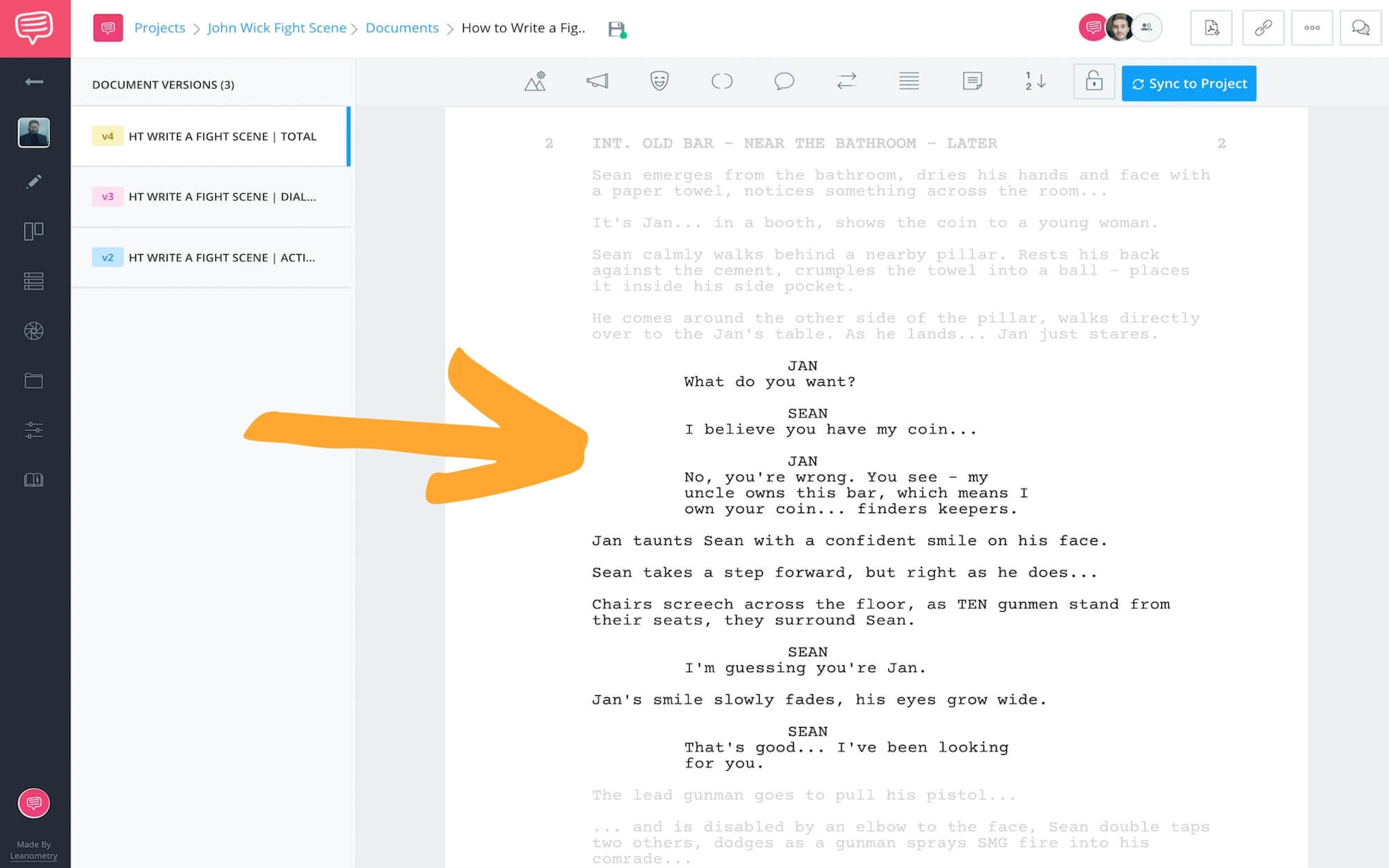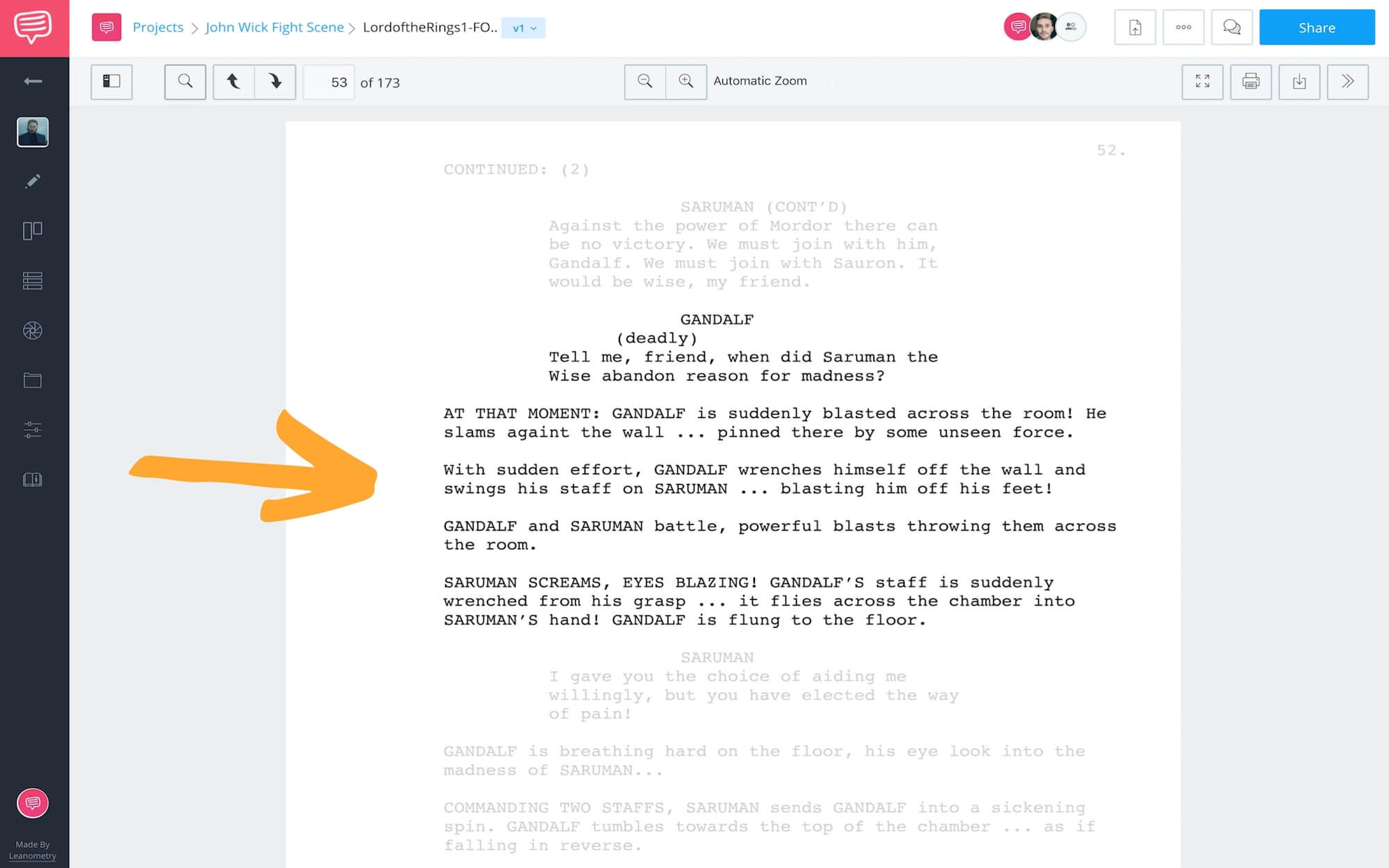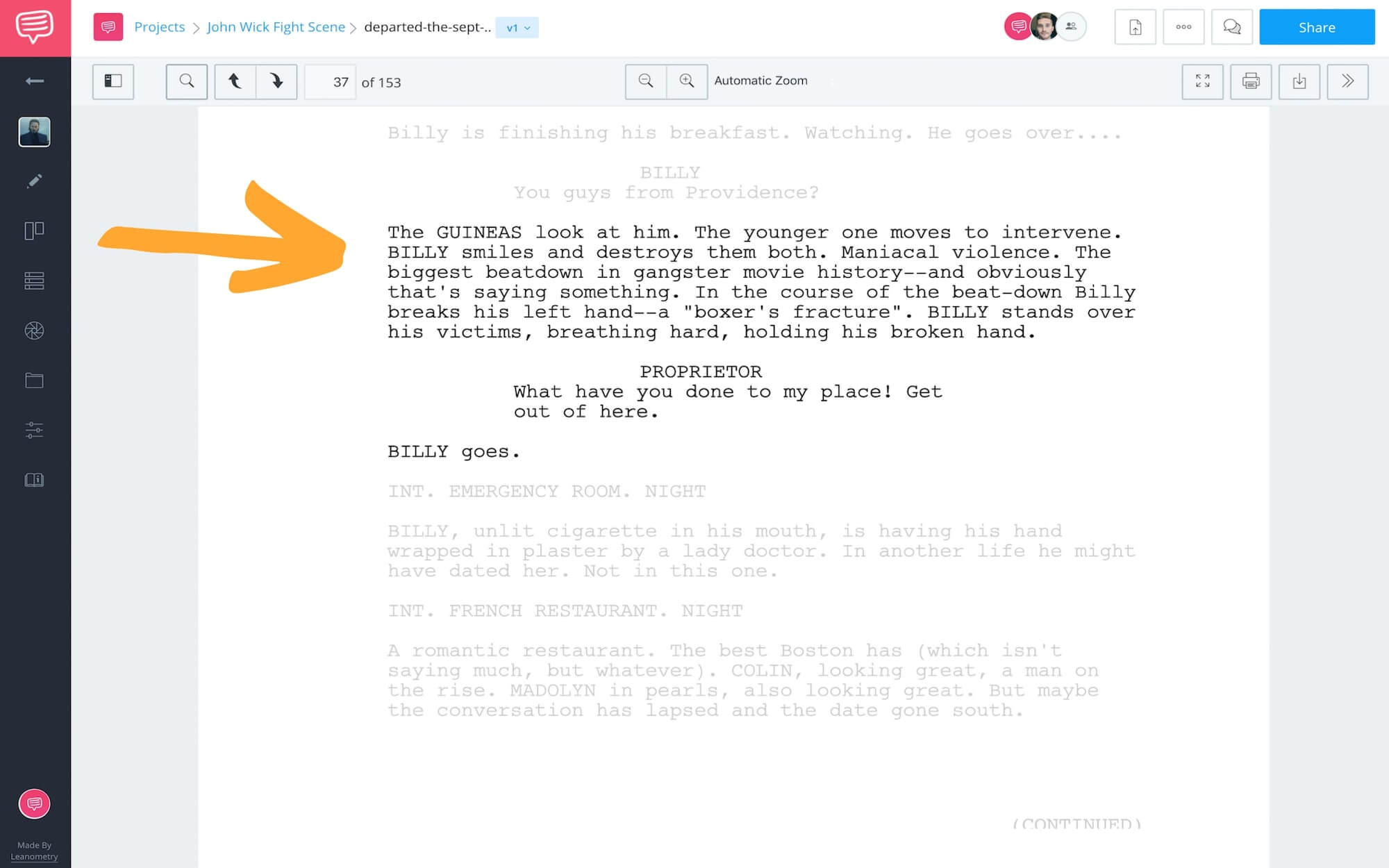You want to learn how to write a fight scene in a screenplay, but it seems that each writer takes their own unique approach. How then can you determine the ‘right way’ to write compelling fight scenes? No worries.
This post will take you through the process of writing the best fight scenes for different genres (with examples) so that they are adequately descriptive, entertain the reader, and help to sell your scripts to professional filmmakers.
Lezgo.
How to Write a Fight Scene: John Wick
How To Write A Fight Scene
The Structure of a Fight Scene
The best TV or movie fight scenes take into account story structure. This means that any fight scene in your screenplay should at the very least follow a three act structure...
Even if the fight is rather brief and one sided.
The Red Circle | John Wick
I’ve created a sample fight scene for reference throughout this post.
What I've written is actually quite large when you compare it to other fight scenes in scripts, but it'll help to better illustrate the main points.
To begin, you will want to set up ACT I:
ACT I - INTRODUCE COMBATANTS
Understanding how to write a fight scene in a screenplay begins with logic. If we want to care about your fight scene, we have to care about the characters, or at the very least know who is about to fight.
See how I introduce the JAN at the start of the scene below:
Introduce Combatants - Screenplay Made In StudioBinder
Even if you have a character that springs out of nowhere, you want to give the reader an idea who each of these combatants are, and perhaps show off some detail that makes them unique from the other person.
Now we can move on to...
ACT II - INTRODUCE CRISIS
Learning how to write fight scenes in a screenplay includes some form of crisis. Crisis can mean many things, so don’t feel as though you have to limit yourself. All you need is something that will raise the stakes.
You don’t want the entire fight to be two people trading blows — there has to be shifting motivations that drive the actions of your characters.
In my example script below, I not only have Sean take a bullet to the hand, but Jan (his target) also attempts to escape, which helps to build tension by making each action time-sensitive and high-stakes:
Introduce Crisis - Screenplay Made In StudioBinder
Introducing a crisis can be a struggle for a valuable item or weapon...
Other times your hero can begin to lose the fight or take heavy damage.
The more you place your characters in compromising situations, the more dramatic the fight.
So make sure to find ways to introduce some logical conflict.
But… please try to find something more interesting than another wave of guys, since this is the default for many uninteresting fight scenes.
ACT III - END WITH SOME STYLE
When learning how to write compelling fight scenes in a screenplay, you need to go out with a bang, and not a whimper. This can mean a lot of things, but you want to create a situation that has a nice form of visual and narrative punctuation.
In the script below, I opted to bid farewell to Jan with a callback to the start of the scene — both with the paper towel and with the coin:
End The Fight - Screenplay Made In StudioBinder
This can be a final strike that hits really hard.
Other times you will have your hero lose the fight.
Maybe your hero figures out a clever way to win the fight.
One of my personal favorites is using a call-back of some sort, which means you will want to build a setup in Act I of the fight scene, or perhaps an earlier scene.
As you can see in the fight scene above, I used a seemingly innocuous pro (the towel) to set up a fun and stylized ending for this fight scene.
This kind of ending can be rather satisfying for the viewer, especially if the towel had established some relevance earlier in the script.
Related Posts
How To Write A Fight Scene
Writing Fight Scene Action Lines
Action lines are the lifeblood of any good screenplay, and especially important in the best movie fight scenes. The bulks of your scenes will be action.
There are five keys to writing fight scene action lines in your screenplay.
1. YOUR ULTIMATE GOAL IS TO BUILD RHYTHM
Every choice you make when writing a fight scene in your script should help to build an appropriate rhythm. This will make your fight scene a pleasure to read, allow the reader to learn information efficiently, and aide the production team.
That rhythm is everything, but it doesn't mean you are handcuffed. In fact, one of the great things about fight scenes in screenplays is how you can find creative ways to build that rhythm with various screenwriting techniques.
Read your fight scene aloud.
Check out the descriptions below:
Build Rhythm - Screenplay Made In StudioBinder
Be aware of the time it takes to read your scene, and how moving pictures may build for someone unfamiliar with your vision.
How do you build this rhythm?
2. KEEP DESCRIPTIONS BRIEF
When writing a fight scene in a script, your action lines don’t need to include every sweet move your combatants use throughout the fight.
We don’t need to hear about every strike that hits, misses, or gets blocked the same way we don’t need to describe every footstep a person takes or every glance during a conversation scene.
Brief Description - Screenplay Made In StudioBinder
Again, always bring it back to the rhythm of the scene. Focus on the big moments, and find ways to bucket the portions of the fight that are more technical, and less relevant to the plot of your fight.
Maybe describe the fighting style in the first few lines.
Or use generalized terms that give a macro view of the fight.
Also, remember than once you’ve introduced information into a screenplay, you don’t need to go over it again.
So if we already read a fight scene earlier in the script that describes the fighting style, no need to go over it again… unless circumstances have changed, or it is somehow super relevant to the action on screen.
What about the length of your fight scenes?
3. SIMULATE SCREEN TIME
A single page in a script will often translate to a minute of screen time. That doesn’t mean you need to have a wall of text full of description just so that your page-to-time ratio fits, but find a way to split the difference.
You can use the return (enter) key to space out the action, and build a more accurate representation for how long the scene will eventually play out on-screen.
Simulate Screen Time - Screenplay Made In StudioBinder
It will help you visualize shots and cuts, even if you don’t call them out.
4. USE ONOMATOPOEIA
You may have a situation where a really big blow lands, or some concept really needs to be driven home without belaboring the point.
This is where onomatopoeia comes in handy.
Onomatopoeia is the formation of a word from an associated sound, so wherever you use a term like ‘snap’ or ‘crack’ or ‘buzz.’
Onomatopoeia - Screenplay Made In StudioBinder
You can use words like this to both break up action lines, but also to emphasize particular moments that need to resonate with the reader.
The best films have really great sound design, so find a way to build a movie inside the reader’s mind complete with important sound beats.
LIST OF FIGHT SCENE ONOMATOPOEIA
- BANG
- BOOM
- BONG
- BUZZ
- CRACK
- CRUNCH
- DING
- GRIND
- GURGLE
- HISSSS
- POP
- SLAM
- SLICE
- SMACK
- SNAP
- SPLASH
- SPLATTER
- THWACK
5. USE ELLIPSIS
Now you know some helpful words to emphasize specific moment and break up the action lines in your fight scenes. Now, what is an ellipsis?
An ellipsis is…
Three dots.
Film producers and directors are not English teachers. They are not laser focused on the rules of grammar, and a screenwriter's job is to build rhythm.
When you write a fight scene in a screenplay, you can use an ellipsis to break up the first half of an important fight beat…
...and then finish it up on the next line to complete the thought.
Ellipses - Screenplay Made In StudioBinder
Combine these two concepts to space out action lines and…
SLAM some rhythm into the readers face.
How To Write A Fight Scene
How to Write Fight Scene Dialogue
Writing dialogue in your fight scenes can be dangerous, but it often depends on the tone of your project. If you are writing a more realistic fight scene, dialogue will often need to be simple, or nonexistent.
If you’re writing a dramatic showdown, you may want some lines.
1. THINK MOTIVATION
You will always write better dialogue when you consider your character’s motivation for both the scene and the overall film. You need to think about what they want, and how they think these lines will get it for them.
Batman Begins | The Will To Act
They may want to avoid the fight altogether.
Maybe they hope to distract the other fighter.
Perhaps they want to motivate the other fighter.
Fight Dialogue - Screenplay Made In StudioBinder
You want to avoid ‘on the nose’ dialogue, but at the same time keep things relevant enough so that the viewer isn’t completely lost.
2. BOOKEND DIALOGUE
Bookending refers to when you begin and end with a nearly identical concept, which can mean an action, a line of dialogue, setting, etc.
This will allow you to place dialogue at the beginning and the end of your scene so that you can avoid unnatural lines in the middle of a fight.
Rorschach Prison Cell Scene
It also makes for a fun moment when the fight comes to an end, because the last line can be a call back to the beginning of the scene, or even a call back to an earlier moment in the film — especially in revenge flicks.
3. ADD SOME COMEDY
Now, this depends on the tone of your story, but often there will be times where the action in your story is so much fun that you can build some really great comedy in your scene that is naturally entertaining.
Rush Hour 2 Fight Scene
Despite what your kindergarten teacher may have told you, violence can be pretty funny under the right circumstances, especially in movies.
Related Posts
How To Write A Fight Scene
Genre Fight Scene Examples
BOXING FIGHT SCENE
Understanding the jargon used by professional fighters will help you build accurate visuals in your fight scenes. Boxing matches often involve moments where fighter ‘clinch’ or where they ‘shuffle.’
You can read the entire Creed script in the link below:
Creed Script - Screenplay Imported Into StudioBinder
A term used here is ‘cages up.’ While you may not know the term yourself, anyone with decent comprehension skills can figure out what it means, but nothing is full-proof. Continue to build a visual story.
MAGIC FIGHT SCENES
If you’ve ever played Dungeons and Dragons (nerd alert) you will know that there are certain terms like ‘magic missile’ or ‘scabbard’ that don't come up in normal conversation, but are perfect for magic fight scenes.
While most producers and directors have enough of an imagination to fill in the blanks, why not give them some context clues to help clarify. They probably don't know how to write a fight scene with magic, but they can read.
Let’s take a look at a magic fight scene example from Fellowship of the Ring, the entire script is available in the link below:
LOTR Script - Screenplay Imported Into StudioBinder
MODERN FIGHT SCENES
Modern fight scenes may include a weapon like a baseball bat, or a gun, but more than anything they are often the easiest to write.
You can read the entire The Departed script in the link below:
The Departed Script - Screenplay Imported Into StudioBinder
There is no need for jargon, or describing his fighting style. If you really want, you can use a macro description like in the scene above.
When you compare the sample script I wrote to the excerpt above, you can see how many screenwriters leave the details to the director.
Choose your preferred route… and go.
Up Next
How to Write a Montage Sequence
You already had some questions about how to write a fight scene. Are you also curious how a screenwriter goes about writing a montage?
If so, make sure to check out our post on How to Write a Montage in a Screenplay where we take you through the process step by step.